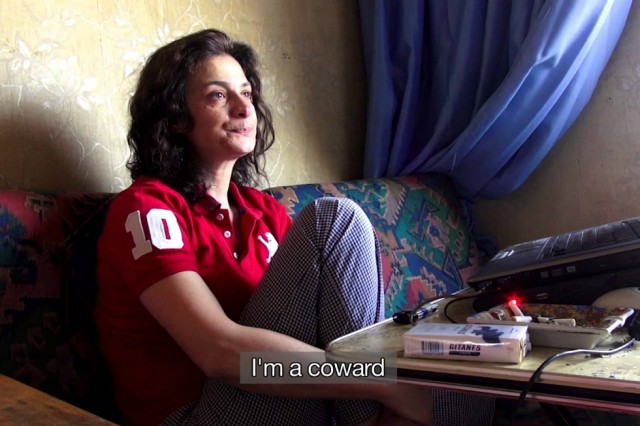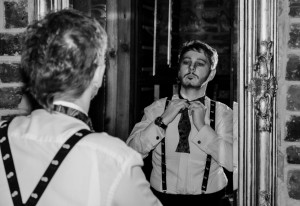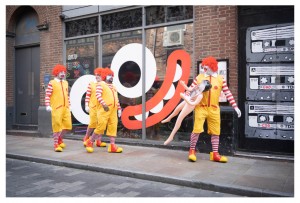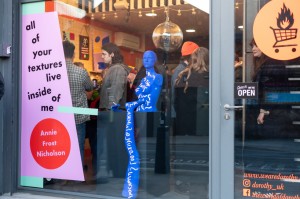“Speak directly to the heart of another”: Liverpool Arab Arts Festival 2015
Heather Garner reacquaints herself with a festival that strives to find common ground within different cultures, traditions and geographic landscapes…
We live in an increasingly small world and with the click of a mouse or the tap of a screen we can access it. Yet with the prevailing globalisation (and perhaps most significantly westernisation) of the world, distinct cultures and traditions can appear lost amongst the noise and visuals of dominating corporations and institutions that have become so familiar to our everyday lives. The result? A missed opportunity to experience the rich and diverse artistic offerings other cultures seek to express.
For the last 17 years, Liverpool Arab Arts Festival (LAAF), in association with the Bluecoat, has sought to provide a remedy for the marginalisation of such cultural epochs by choosing to celebrate the unique perspectives Arabic artists can contribute to the world at large. With this year’s theme – Shaping Change: A Work in Progress – providing a platform to ask: How do Arabic artists adapt to the ever changing modern world from within?
Housed at venues across the city — from the Bluecoat to Unity Theatre, FACT and St Georges Hall – this year’s nine day programme is filled with an admirable diversity of visual arts, music, film and talks that highlights the ‘playful, personal, meditative’ and ‘provocative’ oeuvres of Arabic arts.
Kicking off the festival on this Friday (05/06), Unity theatre will set that provocative tone for the duration with the opening of Liverpool-based artist Elaine Stapleton’s photographic exhibition Silent Voices. Living in the comfort and relative security of an unoccupied nation, it is unimaginable to consider the daily existence of everyday life in a conflicted country: in Stapleton’s work, however, this experience is brought screeching to the forefront of our imaginations through the eyes of children. Armed with nothing more than cameras, children from the ages of 8 to 18 capture life in the small (and in many ways ordinary) village of Bil’in in Israeli-occupied Palestine.

It is this ability of art to capture global, social and cultural issues that will be discussed in vivid detail at the festival’s fascinating symposium, Shaping Change: Women, Culture and Art (08/06). Here, Yemeni rapper Amani Yahya, artist Rachel Gadsden, writer and human rights activist Dr. Elham Manea and youth and community work tutor Steph Green will expose the difficulties that Arabic women face as they attempt to surpass societal expectations and succeed in a male dominated art scene and, indeed, a male dominated culture.
Beyond verbal discussion, the medium of film and (more specifically) documentary film has an unrivalled power in conveying the challenging political concerns that arise throughout LAAF. For this reason, FACT will screen three films from last year’s BBC Arabic Festival (09/06), including Saudi’s Secret Uprising (15), Though I Know the River is Dry (15) and A Farewell to Damascus (15, main picture). All of which depict personal and harrowing topics: a father’s choice between his child and his brother; and a rare glimpse into the political and social unrest of the Arab-Spring inspired protests that have largely gone unreported by the western media.
Despite the advent of iTunes, perhaps the most overlooked aspect of Arabic arts in the western world is that of its music. At St Georges Hall, the moving vocals of Palestinian musicologist and broadcaster Reem Kelani (12/06) are an aural experience that will change the way you listen to music. With a long tradition of protest in Palestine, Kelani manages to harness the 200 years of struggle for human rights the nation has endured and expresses this in music that combines faith, politics and spirituality like no other.
As LAAF Chair, Taher Qassim MBE, puts it, the festival aims “to represent Arab culture and Arab people in a positive way, and… to allow one person, with one set of life experiences, to speak directly to the heart of another”. From this early peek into what is on offer, we are guaranteed a positive and poignant experience (both politically and emotionally) that redresses the balance of a huge, fractured world and, for this reason, is one that is well worth discovering.
Heather Garner
See Liverpool Arab Arts Festival from this Saturday 6 June until 14 June 2015 — ticket prices vary
See the full PDF programme online here





